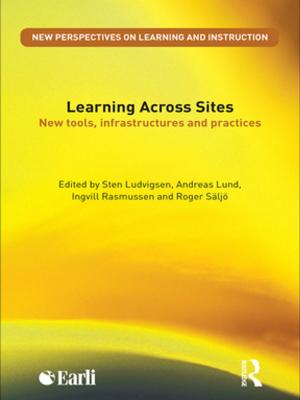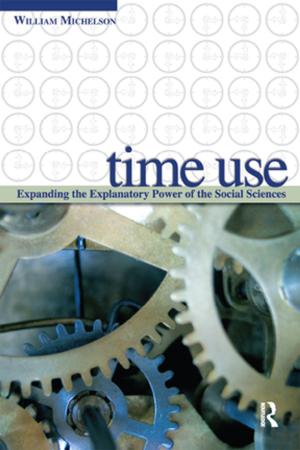Education Policy and Social Reproduction
Class Inscription & Symbolic Control
Nonfiction, Reference & Language, Education & Teaching, Educational Theory, Educational Reform, Philosophy & Social Aspects| Author: | John Fitz, Brian Davies, John Evans | ISBN: | 9781134552474 |
| Publisher: | Taylor and Francis | Publication: | November 16, 2005 |
| Imprint: | Routledge | Language: | English |
| Author: | John Fitz, Brian Davies, John Evans |
| ISBN: | 9781134552474 |
| Publisher: | Taylor and Francis |
| Publication: | November 16, 2005 |
| Imprint: | Routledge |
| Language: | English |
This book takes a theoretically informed look at British education policy over the last sixty years when secondary schooling for all children became an established fact for the first time. Comprehensive schools largely replaced a system based on academic selection. Now, under choice and competition policies, all schools are subject to the rigours of local education markets. What impact did each of these successive policy frameworks have on structures of opportunities for families and their children? How and to what extent was the experience of secondary school students shaped and what influenced the qualifications they obtained and their life chances after schooling?
The authors locate their work within two broad strands in the sociology of education. Basil Bernstein’s work on the realisation of power and control in and through pedagogic discourse and social reproduction provides a theoretical framework for exploring the character of and continuities and change in education and training policies.
The book is an important contribution to debates about the extent to which education is a force for change in class divided societies. The authors also set out to re-establish social class at the centre of educational analysis at a time when emphasis has been on identity and identity formation, arguing for their interdependence. This book will be an important resource for students, policy analysts and policymakers wishing to think through and understand the longer term impact of programmes that have shaped secondary schooling in Britain and elsewhere.
This book takes a theoretically informed look at British education policy over the last sixty years when secondary schooling for all children became an established fact for the first time. Comprehensive schools largely replaced a system based on academic selection. Now, under choice and competition policies, all schools are subject to the rigours of local education markets. What impact did each of these successive policy frameworks have on structures of opportunities for families and their children? How and to what extent was the experience of secondary school students shaped and what influenced the qualifications they obtained and their life chances after schooling?
The authors locate their work within two broad strands in the sociology of education. Basil Bernstein’s work on the realisation of power and control in and through pedagogic discourse and social reproduction provides a theoretical framework for exploring the character of and continuities and change in education and training policies.
The book is an important contribution to debates about the extent to which education is a force for change in class divided societies. The authors also set out to re-establish social class at the centre of educational analysis at a time when emphasis has been on identity and identity formation, arguing for their interdependence. This book will be an important resource for students, policy analysts and policymakers wishing to think through and understand the longer term impact of programmes that have shaped secondary schooling in Britain and elsewhere.















